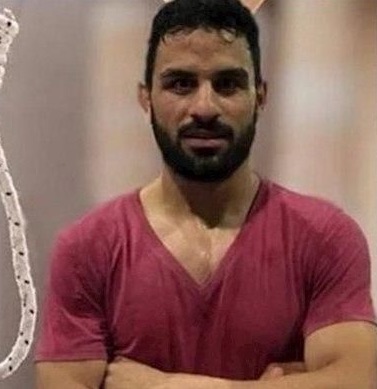
Champion Wrestler Executed despite Evidence of Torture and Innocence
September 12, 2020—The execution of Navid Afkari, the 27-year-old champion wrestler, by hanging at sunrise today in the southern Iranian city of Shiraz, demonstrates the Iranian judiciary’s complete disregard for law, justice and international standards of due process.The Center for Human Rights in Iran (CHRI) condemns in the strongest terms the unlawful and tragic execution of Afkari, and released the following statement today by its executive director, Hadi Ghaemi:
“The decision by Iran’s judiciary to execute wrestling champion Navid Afkari shows yet again that Iran’s judiciary is a tool of political repression and violence—and it is a threat to the Iranian people.
“Afkari was denied any semblance of due process and a fair trial. There is evidence that he did not commit the crime he was accused of and his statement that he was tortured into giving a false confession was never investigated.
“His lawful participation in the protests that swept Iran in 2018 effectively signed his death warrant. The authorities are determined to stamp out any peaceful dissent and protest and are increasingly issuing death sentences to enforce this repression.
“If the international community remains silent in face of the injustice we saw against Afkari, we will see more state violence against peaceful protestors and more lives will be unjustly and unlawfully lost.
“Iran’s judiciary and government bear full responsibility for the unlawful execution of Navid Akfari. Yet it must also be noted that the response of the International Olympic Committee and the United World Wrestling organization was weak and inadequate; they failed to uphold their own principles and regulations, thereby undermining their own viability. Sports federations must hold Iran accountable for its actions.
“My deepest condolences to the family, friends and his colleagues of Navid Afkari, whose life was tragically and senselessly ended at age 27. All citizens, and especially political prisoners in Iran, are vulnerable to the violence and cruel and unlawful actions of the Iranian judiciary.”
